When to plant Brussels sprouts – for long seasons and bumper harvests
Help guarantee Brussels sprouts for Christmas by planting them at the ideal time
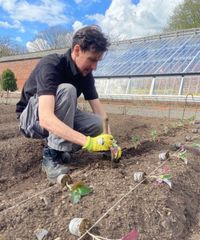
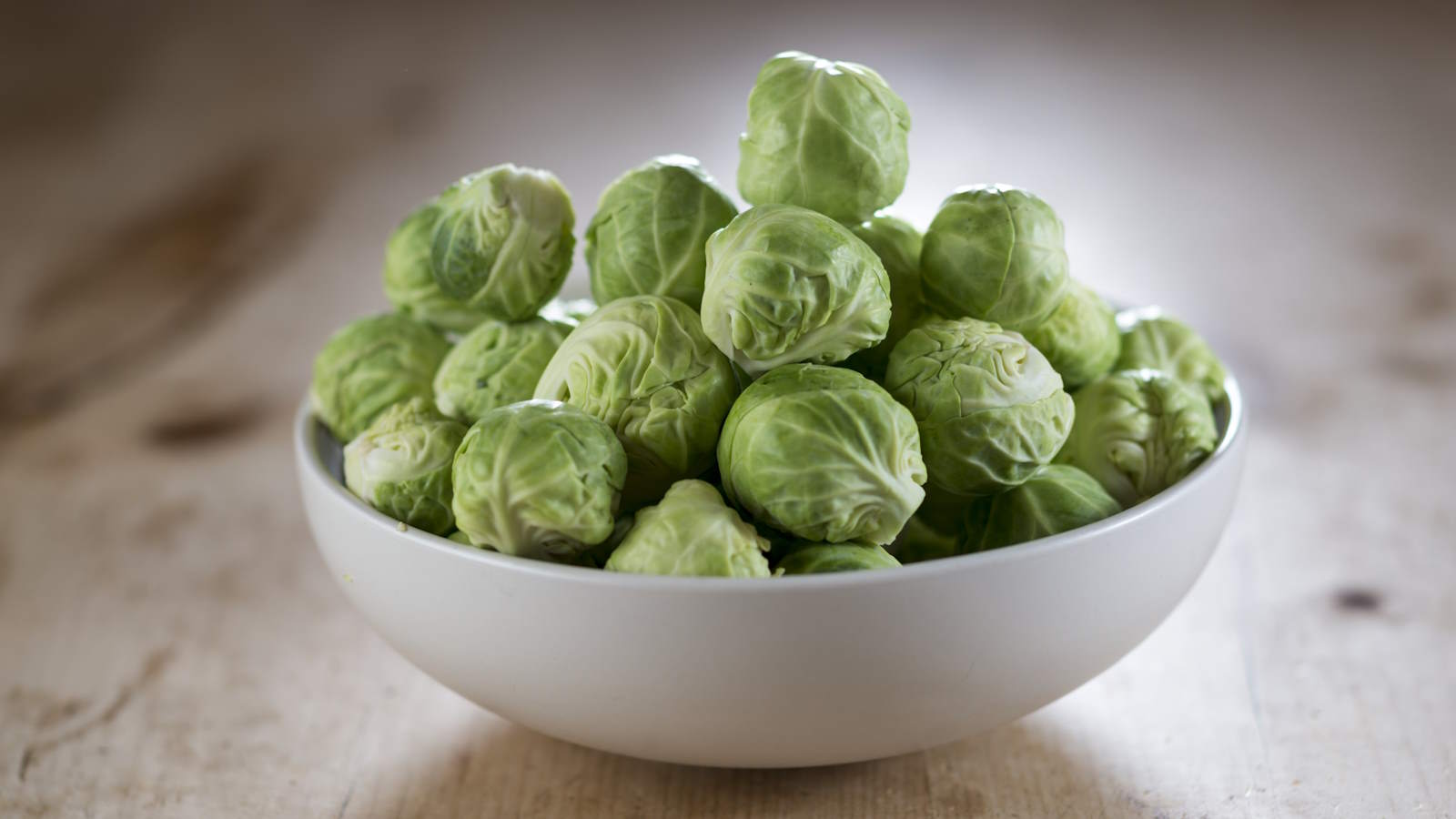
Brussels sprouts are brassica plants grown for their tall stalks of spherical sweet-tasting sprouts that are harvested from fall through winter. They are most traditionally thought of as winter crops that are regularly seen on Christmas dinner plates.
When growing Brussels sprouts, they do have a long growing season. It means that a key aspect when you’re planning when to plant your Brussels sprouts is to ensure you give the crop the time plants need to grow and develop to give a great harvest.
I have grown Brussels sprouts in large numbers for many years, both in vegetable gardens I worked in and also on my plots at home. They are an easy-to-grow crop that do not often need lots of maintenance after they have been planted. The priority is giving them the time required to be able to develop good-sized sprouts to enjoy during the winter months.
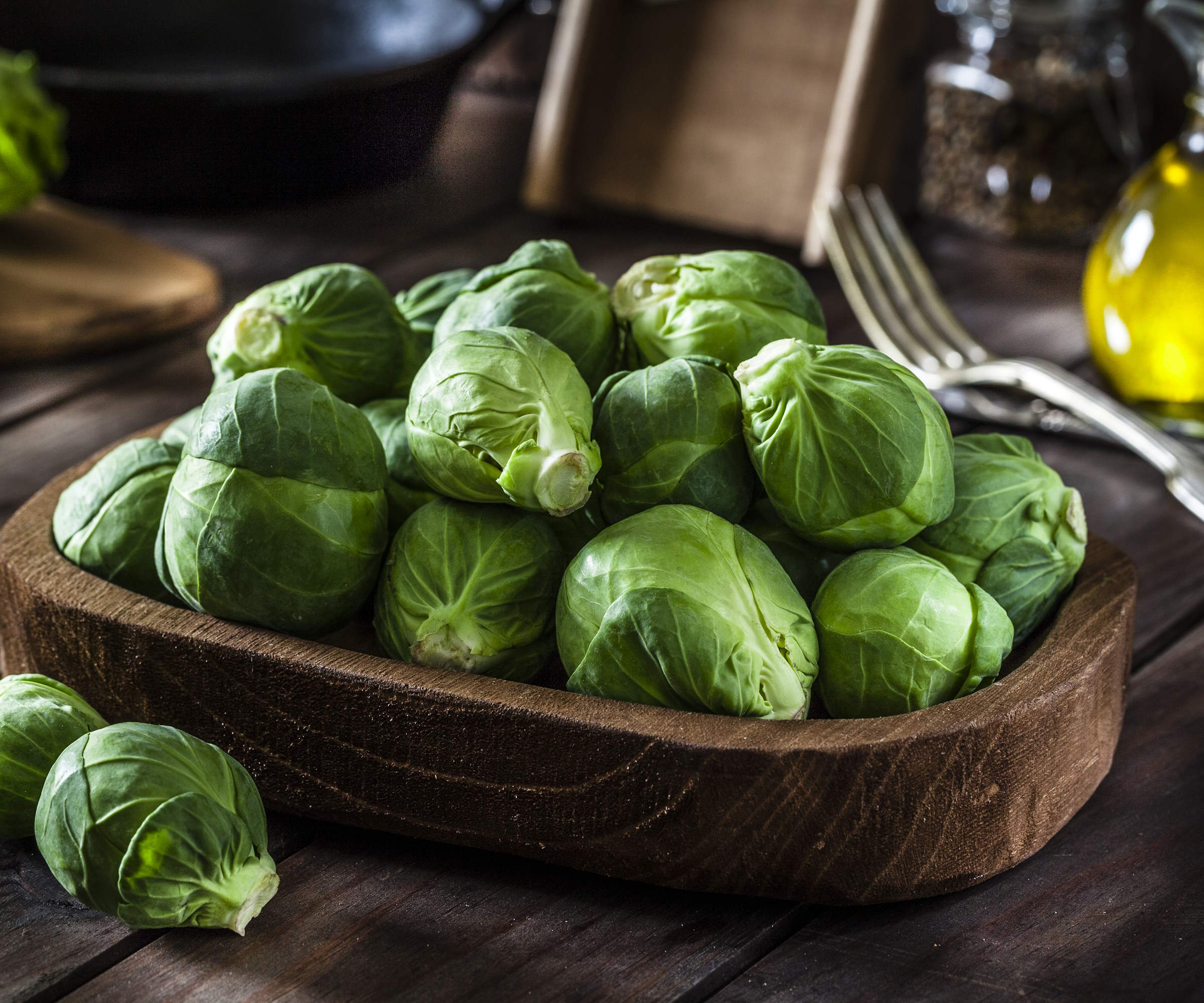
Plants need a long season to develop a harvest of large Brussels sprouts
When to plant Brussels sprouts
The time you plant Brussels sprouts will depend on how you are growing the crop - as there are options available. The crop can be started from seed indoors to plant out later, seeds can be sown directly into the vegetable garden, or young plants can be bought from nurseries, garden centers, or online, to add to the backyard.
You can see the range of Brussels Sprout Seeds & Plants available at Burpee
When to plant Brussels sprouts indoors
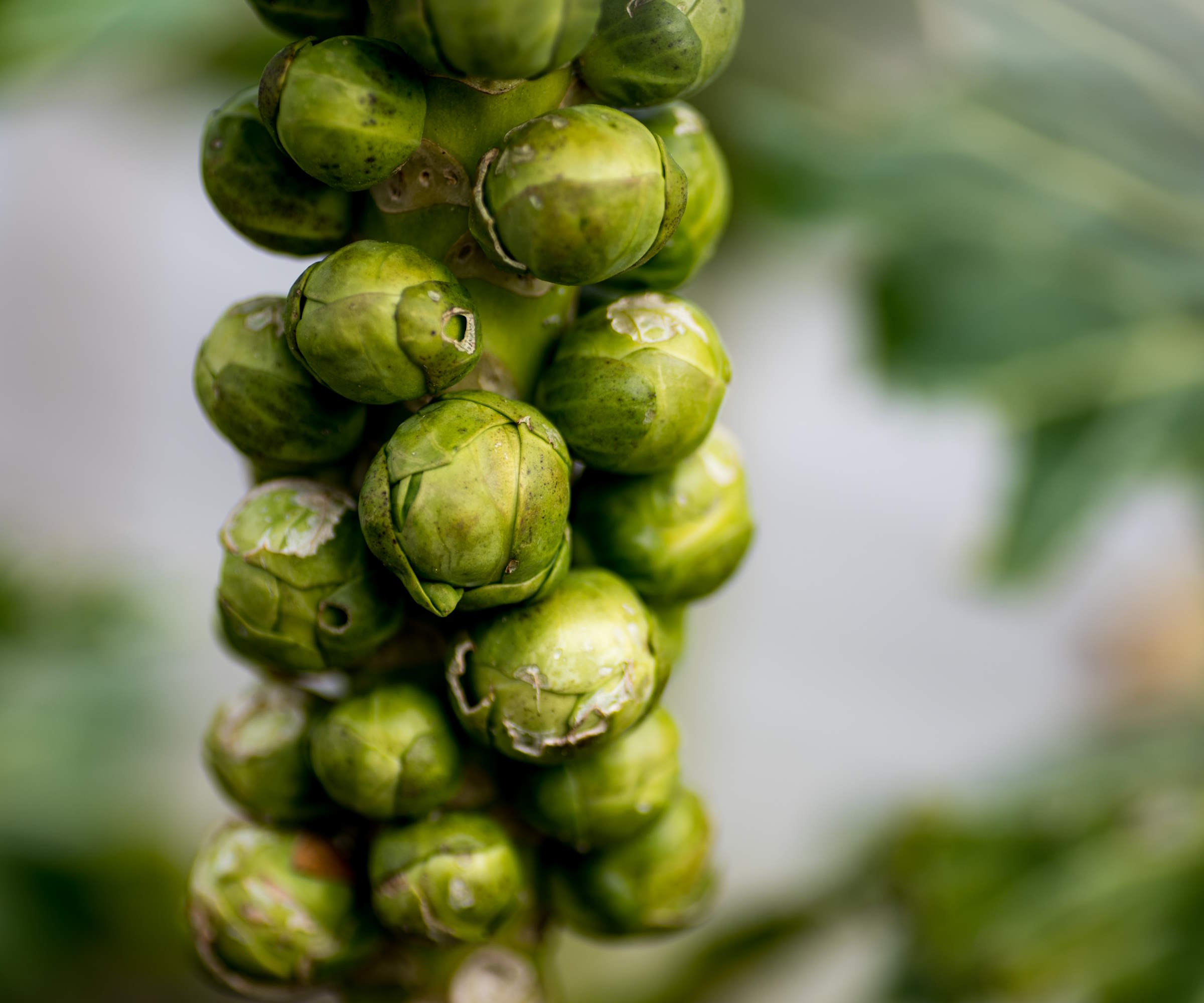
Brussels sprouts plants are commonly grown from seed
Brussels sprouts can be started from seeds in late winter or early spring. This is how I have tended to start my crops off, as part of planning a greenhouse, sowing the seeds into small pots or modules filled with a potting mix designed for starting seeds off in. One example of a good potting mix you could use is the Espoma Organic Seed Starter Premium Potting Soil Mix, available at Amazon. The window to start planting Brussels sprouts can run from March through April, but the exact times will depend on your climate.
As part of planning when to plant vegetables, it is recommended to successionally sow the crop. By planting Brussels sprouts every few weeks between the months of March and May can mean a longer season of Brussels sprouts to harvest, running from fall through winter - and will importantly ensure they are vegetables to harvest in December for the festive dinner plates.
Design expertise in your inbox – from inspiring decorating ideas and beautiful celebrity homes to practical gardening advice and shopping round-ups.
When to plant Brussels sprouts started indoors
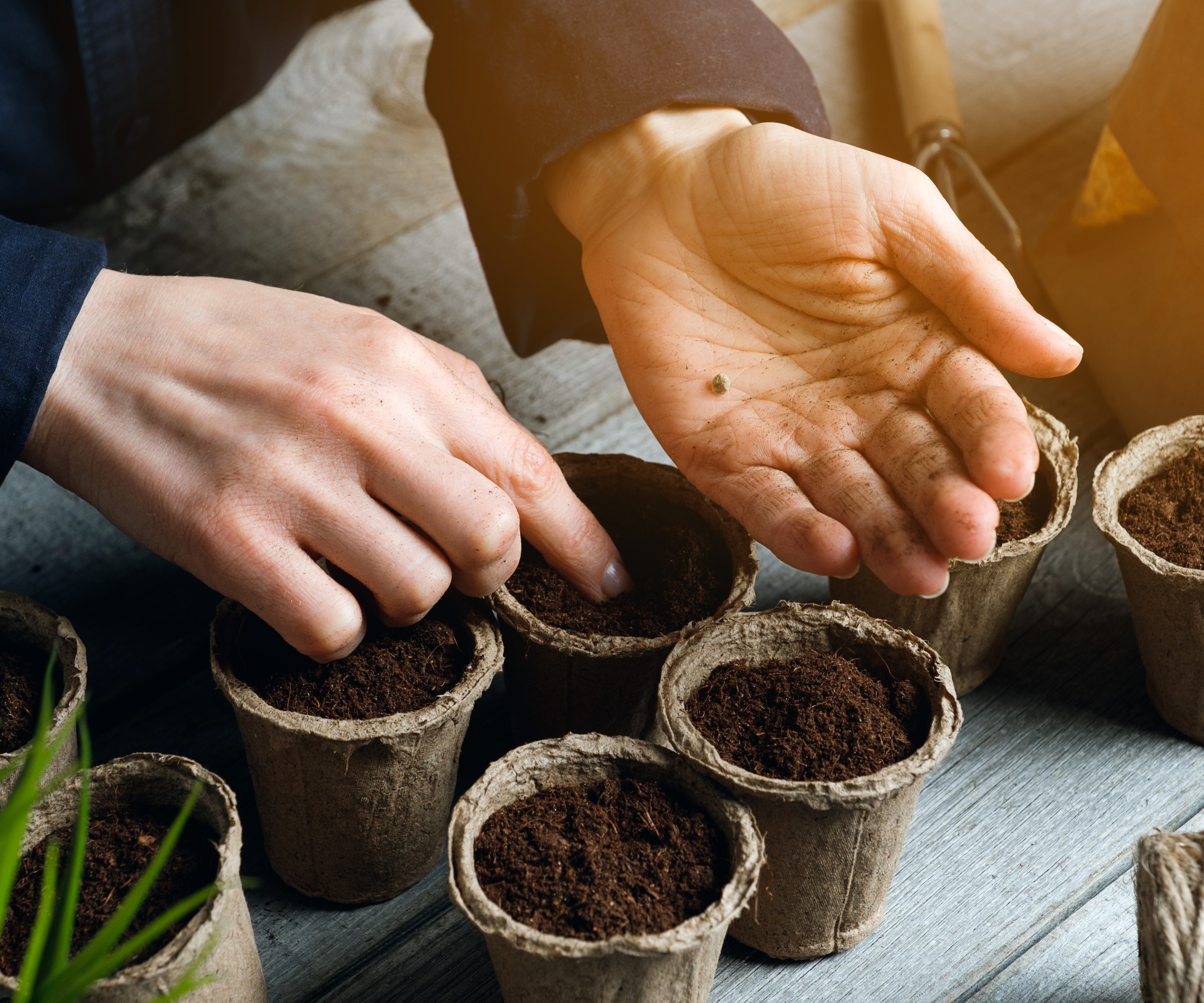
Plant Brussels sprouts seeds indoors in spring
Brussels sprouts that are grown from seed, or purchased from nurseries or retailers as young plants, can be planted out into the kitchen garden once the risk of frosts has passed in your US hardiness zone. This can be from May onwards, providing the frosts have ended and the soil has warmed up, once the plants are at least four inches tall.
Plants that have been grown in a greenhouse, and especially if they were in a heated greenhouse, need to be hardened off before being planted. This can be done by bringing them outdoors during the day for a week, or keeping them in a cold frame, prior to going into their final planting space.
When you are transplanting seedlings and young Brussels sprouts plants, they do need to be firmed into the ground well to ensure they are stable in the ground.
When to plant Brussels sprouts outdoors
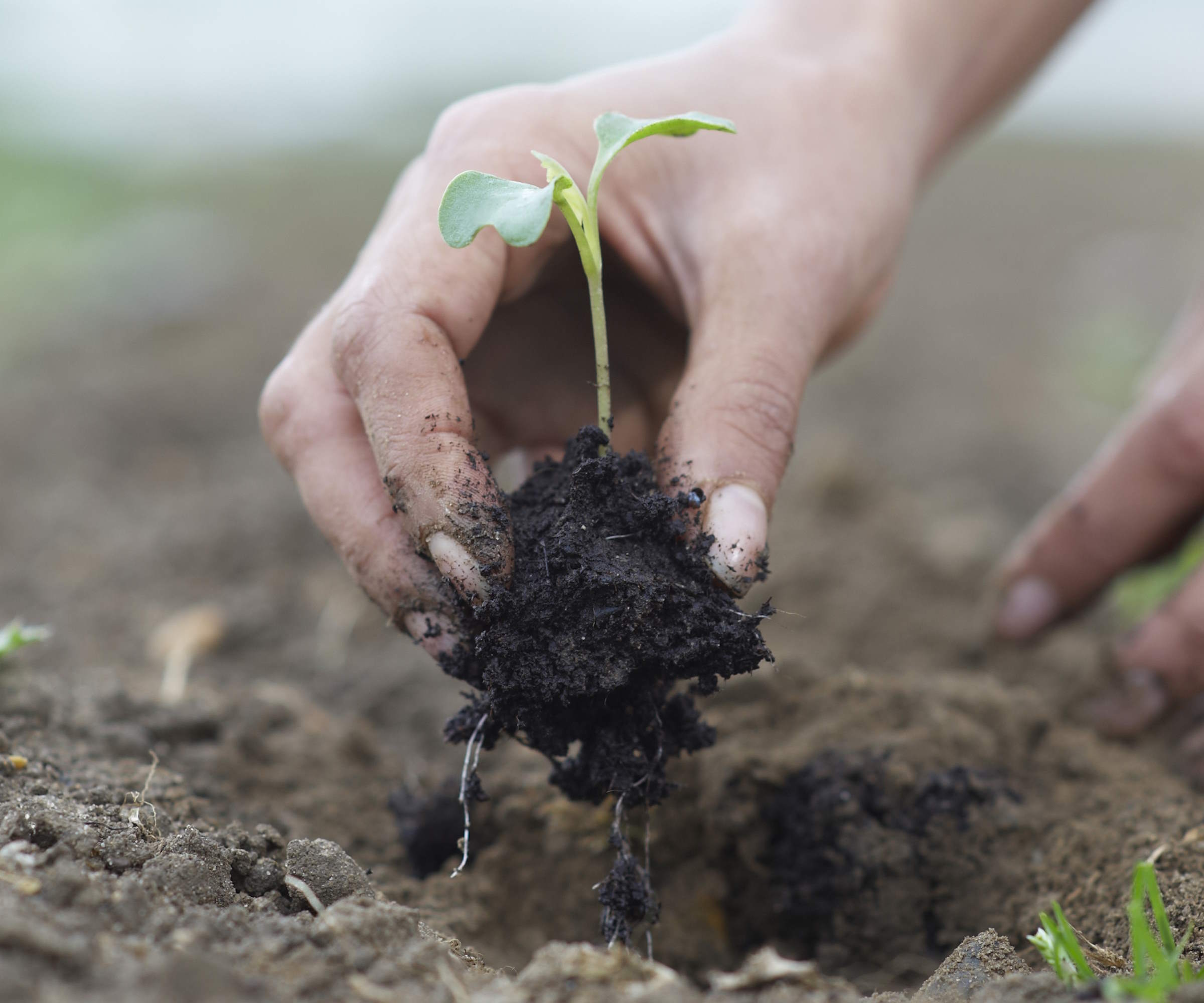
Plant out Brussels sprouts when they are a few inches tall
Brussels sprouts can be planted into the ground once the soil has warmed up in spring. You can help to warm the soil earlier through the use of cloches and fleece, which can also provide protected environments for early planting of sprouts. Depending on your climate, you can plant Brussels sprouts seeds outdoors in early spring once the soil temperature is consistently above 45F.
In warmer regions that have mild winters, Brussels sprouts can also be planted in late summer or early fall to provide a harvest throughout winter and spring. These sowings can either be done indoors or directly outdoors in the vegetable garden. If you are planning a late sowing, make sure the plants can get at least 100 days of growing in order to provide a good crop of sprouts.
A disadvantage of outdoor sowings is that slugs and snails can nibble on seedlings, so you may need to consider slug control methods to stop young plants getting eaten.
FAQs
When to plant Brussels sprouts for Christmas?
There are lots of varieties of Brussels sprouts to grow that come in early, mid, and late-season varieties. The mid and late-season types are most suited for growing for Christmas and are a vegetable that can overwinter in the garden. The crop does need a long growing season and it is ideal to plant them in March or April to develop a strong plant and get a great harvest for the Christmas season. A cold-hardy variety that is ideal to sow and grow for winter cropping is Long Island Improved Brussels Sprouts, with seed available at True Leaf Market.
Can you plant Brussel sprouts in a pot?
Brussels sprouts can be grown as part of a vegetable container garden. It is recommended to use a large pot, with a diameter of at least 12 inches, and with lots of holes in the bottom for drainage. It is better to pick smaller dwarf-growing early varieties for pots, but plants still require a lot of space and a 12 inch pot would only accommodate one plant. Vegetables growing in containers will require more watering and feeding than crops in the soil.
It is not a common way of propagating the crop, but it is possible to grow Brussels sprouts from scraps. New plants can be started using either individual sprouts, or by regrowing the old stalk. While there is no guarantee of success, it may make an interesting garden experiment rather than throwing these unwanted scraps into the waste.

Drew has worked as a writer since 2008 and was also a professional gardener for many years. As a trained horticulturist, he worked in prestigious historic gardens, including Hanbury Hall and the world-famous Hidcote Manor Garden. He also spent time as a specialist kitchen gardener at Soho Farmhouse and Netherby Hall, where he grew vegetables, fruit, herbs, and cut flowers for restaurants. Drew has written for numerous print and online publications and is an allotment holder and garden blogger. He is shortlisted for the Digital Gardening Writer of the Year at the 2025 Garden Media Guild Awards.